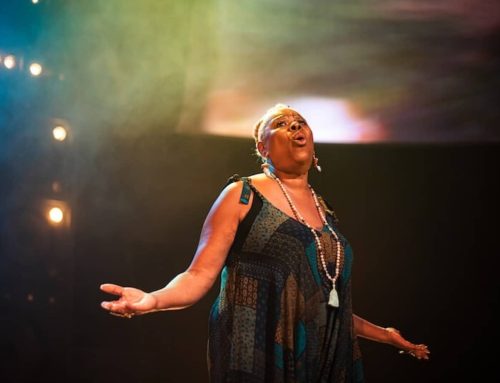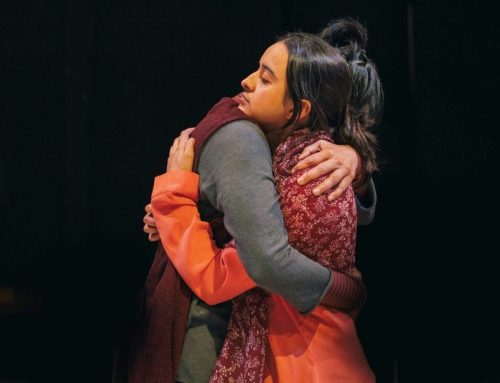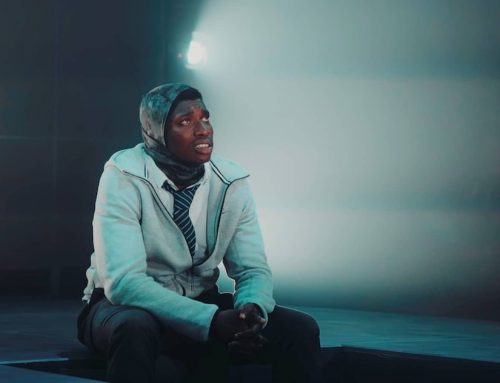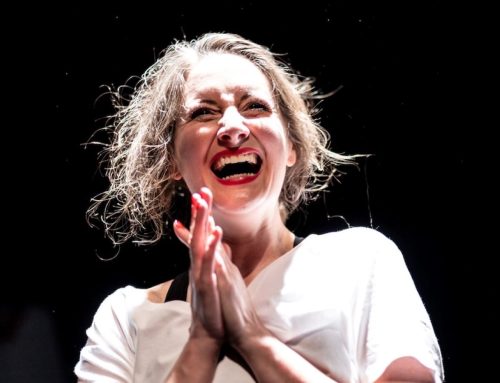For Black Boys Who Have Considered Suicide When The Hue Gets Too Heavy
Ryan Calais Cameron’s engaging confection of poetry, prose, music and dance illuminates and ultimately celebrates the culture of young black British men.
6 April 2022
‘For Black Boys Who Have Considered Suicide When The Hue Gets Too Heavy’ opens with an extraordinary piece of dance that I suppose is designed as a kind of overture to the themes of Ryan Calais Cameron’s demanding but rewarding ensemble production.
In this opening dance the play’s six male characters become entangled in a pulsating rhythmic embrace that is almost violent in its intensity. At its climax, one of the men is presented up to the audience, Jesus-like and bare-chested, on the shoulders of his peers. But, after a moment or two his mates no longer seem to want to carry him. Like Icarus the man has flown too high. As he thrashes back to the floor an accusing finger wags at him, as if to question his impudence in thinking he is man enough to take wing.
It is with the challenges of surviving and thriving as a black boy and man in Britain that ‘For Black Boys Who Have Considered Suicide When The Hue Gets Too Heavy’ concerns itself. So, whether deliberate or not, this allusion to Icarus, who of course did not survive the transition from boyhood to manhood, seems apt. And the suggestion that sometimes black men are among their own worst enemies reverberates throughout the rest of the work.
The lives, concerns, fears and angers of the play’s many roles are recounted through an exuberant and often angry mixture of dance, dialogue, personal history, verse, and music. The six actors have skin in the game here, and their commitment to giving the various characters they inhabit a fair hearing, warts and all, together with their obvious talent, makes the mash-up work much more engagingly than it sounds. In fact, it works well.
Mark Akintimehin as the brutalised bad-man Onyx particularly impresses, as does Emmanuel Akwafo in his cameo as a lovestruck commuter who cannot quite bring himself to tell the object of his affections what he thinks. I suppose one criticism might be that occasionally the cast seemed overawed by the Royal Court’s space, the play having recently transferred from the tiny New Diorama.
The play’s first half broadly explores growing up as a black child and takes place in what seems to be some kind of therapy group, although the context is never really made clear. I suppose Ryan Calais Cameron’s concern here is having audience members reflect on their own stereotyped assumptions about who these men are and what they are doing there.
The second half takes place in a kind of disco, with a raised terrace behind and to the sides of a dance floor. This conception of the club as a sexual hunting ground sets the scene for reflections on black men’s attitudes towards women and sex, to the challenges of commitment in relationships, and to the destructive consequences that their own self-objectification as sexual athletes causes some black men. It also allows the characters to try out the world’s worst pick up lines, a couple of which still had me chuckling on the tube home.
The dance floor, superbly lit by lighting designer Rory Beaton, took a darker turn later in the second half as it transformed into a kind of bear pit in which reflections on deep-seated homophobia, endemic knife crime, and gang affiliation played out.
The play’s final peroration for black men to step up and face their challenges together brought the Royal Court’s young and diverse audience to a prolonged standing ovation. I was not surprised. This is a quality, thought-provoking and worthwhile piece of work that speaks directly to a generation determined to see change.
Duration: 2 hours 10 mins. One interval.
Writer / Director Ryan Calais Cameron
Assistant Director Monaé Robinson
Cast
Onyx Mark Akintimehin
Pitch Emmanuel Akwafo
Jet Nnabiko Ejimofor
Sable Darragh Hand
Obsidian Aruna Jalloh
Midnight Kaine Lawrence
Originally commissioned by New Diorama Theatre, co-commissioned by Boundless Theatre.
Full Disclosure: I paid full box-office price for the ticket.





